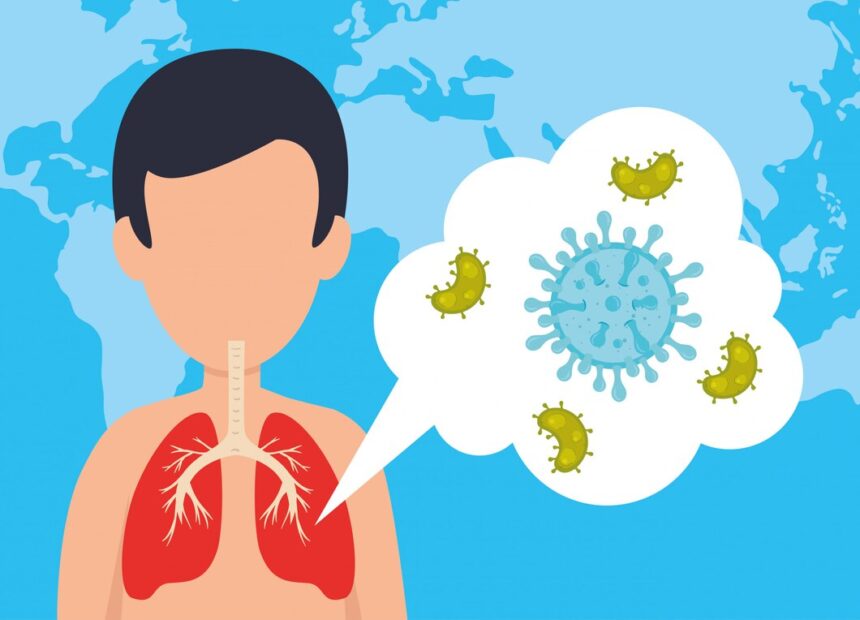Phlegm, or balgham, is a common concern that often arises due to respiratory infections, seasonal allergies, or lifestyle factors. While not a disease in itself, excessive phlegm can lead to discomfort, coughing, and even difficulty breathing. For centuries, traditional and modern medicine have offered various remedies to address this issue. This blog delves into the causes of excessive balgham ka ilaj, effective treatments, and lifestyle tips for maintaining a healthy respiratory system.
1. What is Balgham and Why Does It Form?
Balgham, commonly known as phlegm, is a thick, sticky substance produced by the respiratory system to trap dust, allergens, and pathogens. It acts as a protective barrier, but excessive production can signal an underlying issue.
Common Causes of Excessive Balgham:
- Respiratory Infections: Conditions like the flu, bronchitis, or pneumonia often lead to increased phlegm production.
- Allergies: Seasonal allergies to pollen, dust, or mold can irritate the respiratory system.
- Smoking: Tobacco smoke irritates the lungs, causing chronic phlegm build-up.
- Pollution: Prolonged exposure to polluted air can trigger excessive mucus production.
- Dietary Triggers: Consumption of cold, oily, or spicy foods can sometimes increase phlegm in susceptible individuals.
Understanding the cause is the first step in finding an effective remedy.
2. Traditional Remedies for Balgham Ka Ilaj
For generations, traditional medicine has provided time-tested remedies for reducing balgham. These remedies often involve natural ingredients readily available at home.
Famous Home Remedies:
- Honey and Ginger:
- Ginger has anti-inflammatory properties, while honey soothes the throat.
- How to Use: Mix one teaspoon of grated ginger with honey and consume twice a day.
- Steam Inhalation:
- Steam helps loosen mucus and clears the nasal passages.
- How to Use: Add a few drops of eucalyptus oil to hot water, inhale the steam for 10 minutes, and repeat as needed.
- Turmeric Milk (Haldi Doodh):
- Turmeric contains curcumin, which has antibacterial and anti-inflammatory properties.
- How to Use: Add half a teaspoon of turmeric to warm milk and drink before bedtime.
- Salt Water Gargles:
- Gargling helps clear mucus from the throat and soothes irritation.
- How to Use: Mix half a teaspoon of salt in warm water and gargle 2-3 times daily.
- Lemon and Warm Water:
- Lemon’s Vitamin C boosts immunity, and warm water helps break down mucus.
- How to Use: Squeeze half a lemon into a glass of warm water, add honey, and drink in the morning.
3. Modern Treatments for Phlegm Relief
Medical advancements offer effective treatments for managing excessive phlegm. Depending on the underlying cause, doctors may recommend specific therapies or medications.
Common Medical Treatments:
- Expectorants: Medications like guaifenesin thin the mucus, making it easier to expel.
- Decongestants: Help reduce nasal swelling and mucus production, providing temporary relief.
- Antihistamines: Useful for allergy-induced phlegm, as they block the histamine response.
- Antibiotics: Prescribed when bacterial infections are the root cause of excessive phlegm.
- Nebulizers: Deliver medication directly to the lungs, especially effective for chronic respiratory conditions.
Consult a healthcare professional for a proper diagnosis and tailored treatment plan.
4. Dietary Tips to Manage Balgham
Diet plays a crucial role in managing phlegm. Certain foods can help reduce mucus production, while others may aggravate it.
Foods to Include:
- Warm Soups: Chicken soup or vegetable broths can help thin mucus.
- Spices: Garlic, ginger, and black pepper have natural anti-inflammatory and mucolytic properties.
- Citrus Fruits: Oranges, lemons, and grapefruits are rich in Vitamin C, which boosts immunity.
- Green Tea: Contains antioxidants that help reduce inflammation.
- Honey: Acts as a natural cough suppressant and soothes the throat.
Foods to Avoid:
- Dairy Products: Milk and cheese can thicken mucus in some people.
- Fried and Oily Foods: These can irritate the throat and lead to more mucus production.
- Cold Beverages: May aggravate respiratory symptoms and increase mucus.
Making conscious dietary choices can significantly reduce the discomfort associated with balgham.
5. Lifestyle Changes for a Phlegm-Free Life
Long-term management of excessive phlegm requires adopting healthy lifestyle habits.
Key Lifestyle Tips:
- Stay Hydrated:
- Drinking plenty of water helps thin mucus, making it easier to expel.
- Aim for 8-10 glasses of water daily.
- Quit Smoking:
- Smoking damages the respiratory tract and increases mucus production.
- Seek support or use cessation aids if needed.
- Maintain Clean Air:
- Use air purifiers and keep your living space dust-free to reduce irritants.
- Exercise Regularly:
- Physical activity improves lung function and helps clear mucus.
- Avoid Triggers:
- Identify and minimize exposure to allergens or irritants that cause phlegm build-up.
Consistency in these habits can lead to long-term respiratory health.
6. Preventive Measures to Avoid Excessive Balgham
Prevention is always better than cure. Incorporating certain habits can help avoid the recurrence of excessive balgham.
Effective Preventive Strategies:
- Seasonal Care:
- During allergy seasons, use antihistamines and keep windows closed to minimize pollen exposure.
- Hygiene Practices:
- Wash hands frequently to prevent infections that may lead to phlegm build-up.
- Balanced Diet:
- A diet rich in fruits, vegetables, and lean proteins strengthens immunity.
- Proper Rest:
- Adequate sleep helps the body recover and maintain a strong immune system.
These measures can significantly reduce the likelihood of excessive phlegm and associated discomfort.
Conclusion
Balgham, while a natural response of the body, can become a source of irritation and discomfort when produced in excess. Understanding its causes and adopting a combination of traditional remedies, medical treatments, and lifestyle changes can help manage and prevent excessive phlegm effectively.
In DHA, where modern healthcare facilities and access to natural remedies are both readily available, managing balgham becomes more accessible. Whether it’s inhaling steam infused with eucalyptus oil, sipping on turmeric milk, or consulting a doctor for targeted treatments, addressing this issue is within everyone’s reach.





